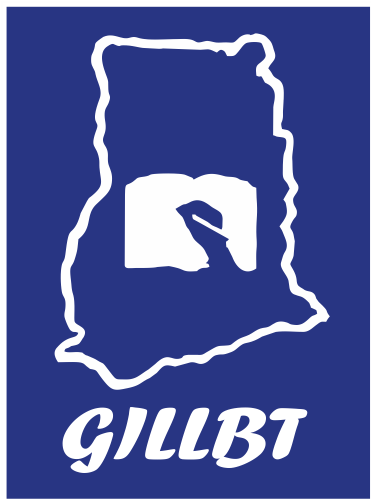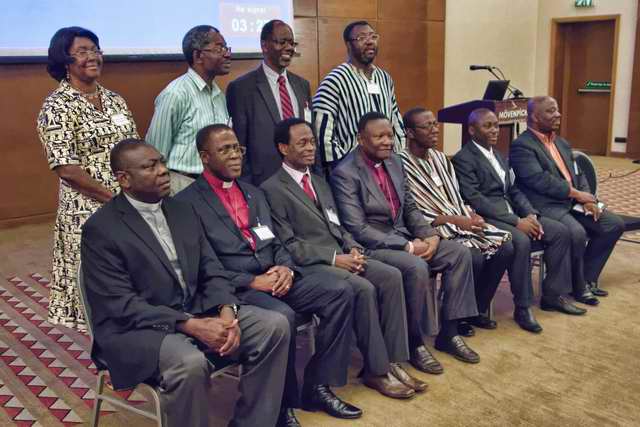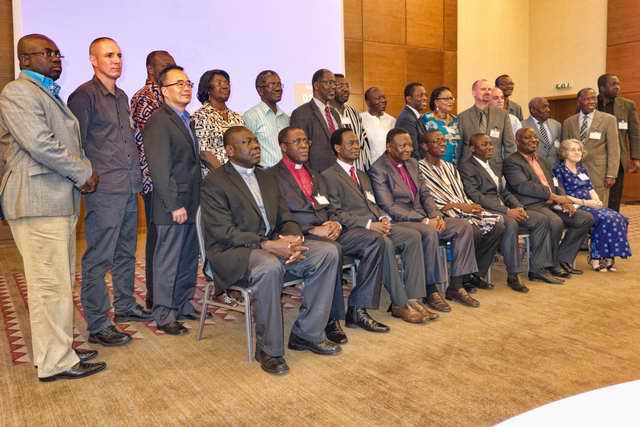On November 10 and 11, 2014, a Conference on the Church and Bible Translation in Africa was held at the Mövenpick Ambassador Hotel in Accra, Ghana. Represented at the conference were Church leaders, representatives of Ghanaian theological seminaries, and the leaders of Bible agencies in Ghana and beyond including the Bible Society of Ghana and GILLBT. Below is the final declaration of the conference. The declaration is also available as a PDF.
Accra Declaration
Conference on the Church and Bible Translation in Africa
10–11 November 2014, Accra, Ghana
We, the participants from Churches, Theological Institutions, Bible Agencies, Businesses and External Partners of the Ghana Institute of Linguistics Literacy and Bible Translation (GILLBT), meeting in a conference at the Mövenpick Ambassador Hotel in Accra, Ghana on 10–11 November 2014 under the theme The Church and Bible Translation in Africa, rejoice over the quality time we spent together discussing the key issues that affect Bible translation and the Church in Africa and devising new perspectives in the light of current and future realities.
The purpose of the conference was to engage in a national and continental conversation on the role of the Ghanaian and African Church in mother tongue Bible translation.
The presentations and discussions allowed the participants to review and sharpen their understanding of the historical and current contexts of the Church and Bible translation in Africa, as well as the ongoing strategic and philosophical orientations for funding and operating Bible translation programmes. A consensus emerged among the various organisations on the need for a four-square – quadripartite – partnership between the Church, the theological institutions, the Bible agencies, and the resourcing and business communities to foster mother tongue Bible translation and use for the furtherance of the mission of God on the continent.
Recognising that Christianity has grown and spread over millennia through incarnation and enculturation following the model of Jesus Christ who became flesh and used the human language and culture to introduce the kingdom of God, we acknowledge the critical importance and role of Bible translation in the efforts to see Christ incarnate among the language communities of the continent.
In the light of the realities of the increasing pressure on mother tongue use in a globalising context, the weak link between the Church and Bible translation, the numerous remaining languages without translated Scriptures, and of the growing capacity of the Church in Africa to take responsibility for addressing these needs, we affirm the following:
1. As God’s main instrument for His mission in the world, the Church – especially in Africa – must confidently assume its responsibility and leadership in Bible translation by setting goals, providing the needed theological input, as well as other resources needed for the effectiveness of translation projects;
2. Bible Agencies, realising that they are agents of the Church, must frame their translation efforts in the context of the Church (local, regional, national) and maintain accountability relationships with the Church for their goals, plans and achievements;
3. Theological Institutions must continue, expand and/or introduce innovative programmes that integrate and give the mother tongues their rightful and necessary place in ministerial training and theological reflection for the enrichment of the Church in Africa and around the world;
4. The African Christian Business Community, whose support has been critical to the growth of the African Church in recent times, should be engaged by the Church and Bible Agencies in order to build a shared vision for and understanding of mother tongue Bible translation, and secure the perspectives and contributions of these businesses to the work;
5. The External Partners in Bible translation should join the African actors in their increasing efforts to own and embed the work in the African context;
6. The quadripartite partnership, having as its ultimate target the African Christian end-user who has been trained to use the scriptures in the heart language, should promote Bible literacy using the translated scriptures, as well as the development of diglot and polyglot Bibles, to enhance use of the translated mother tongue Bibles;
7. A Mother Tongue Bible Translation Sunday should be instituted among all the churches of Ghana to raise awareness of the value and obligation for mother tongue translation and use, and to collect financial contributions for the ministry.
Finally, considering our shared vision for an authentic Christian witness that is deeply embedded in the languages and cultures of communities in Africa, and encouraged by our shared understanding that the responsibility and the resources for this ministry will increasingly come from Africa, we:
- call on all the participants to work in ways that will help to advance and achieve the affirmations above; and
- commit ourselves and the organisations we represent to a permanent dialogue through regular consultations on issues of Bible translation and scripture engagement with a view to deepening the conversations at this conference and holding ourselves accountable for progress towards our common goals.
We trust God’s help and guidance as we endeavour to take up these issues for the sustained growth of His Church in Africa and beyond.
For the Participants:
The Chair of the Organising Committee The Conference Coordinator
Rev Prof Gilbert Ansre Dr Paul Opoku-Mensah



Please if you want to be part of spreading the Gospel to the poor by contributing to free bible for the poor, what is the procedure. Thank you